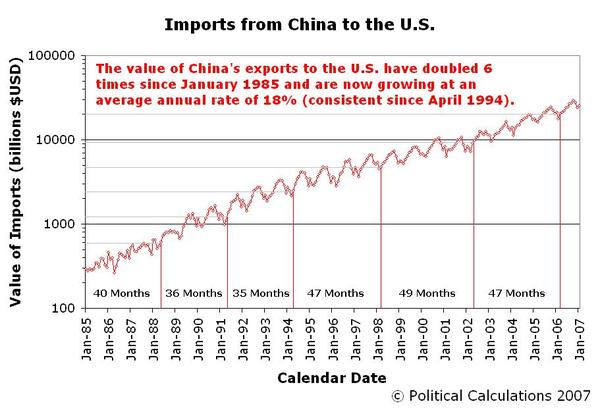FG: Introduction
I was given a copy of Pastor John Piper's book -- The Purifying Power of Living by Faith in Future Grace -- for my birthday. Pastor Piper wrote the back as a series of short chapters, intended to be read one a day. I've been attempting to do so.
Over the next couple of weeks, I'd like to blog about my thoughts as I read through the book.
Chapter One -- The Debtor's Ethic: Should We Try to Pay God Back?
In this chapter, Pastor Piper addresses the popular idea that we should obey God out of gratitude for our salvation. Piper calls this the debtor's ethic:
The debtor's ethic says, "Because you have done something good for me, I feel indebted to do something good for you." This impulse is not what gratitude was designed to produce. God meant gratitude to be a spontaneous expression of pleasure in the gift and the good will of another. He did not mean it to be an impulse to return favors. If gratitude is twisted into a sense of debt, it gives birth to the debtor's ethic -- and the effect is to nullify grace.
What's gone wrong? It's not wrong to feel gratitude when someone gives us a gift. The trouble starts with the impulse that now we owe a "gift". What this feeling does is turn gifts into legal currency. Subtly the gift is no longer a gift but a business transaction. And what was offered as free grace is nullified by distorted gratitude.
Piper goes on to demonstrate that nowhere in Scripture is gratitude given as a reason for obedience. Rather, the people throughout the Bible are condemned for their lack of faith -- not their lack of gratitude. (Numbers 14:11; Deut 1:31-32; Psalm 78:15,17,22.) Rather, Piper says, we should obey God out of a faith in future grace.
Faith in future grace is the secret that keeps impulses of gratitude from turning into the debtor's ethic. True gratitude exults in the riches of God's grace as it looks back on the benefits it has received. By cherishing past grace in this way, it inclines the heart to trust in future grace. We might say that gratitude has a strong appetite for the enjoyment of looking back on the outpourings of God's grace. Since God does this future outpouring through faith, therefore gratitude sends its impulses of delight into faith in future grace. This is expressed in the words: lift up the cup of salvation and call on the name of the Lord (Psalm 116:12-14). Gratitude exults in the past benefits of God and says to faith, "Embrace more of these benefits for the future, so that my happy work of looking back on God's deliverance may continue."
Chapter Two: When Gratitude Malfunctions
A Filipino Insight
Pastor Piper starts chapter two with an anecdote about encountering a missionary to the Philippines. She told about the Filipino concept of utang na loob. She said "To a Filipino, to show a lack of due gratitude is outrageous; being grateful is almost second nature to him. His sense of utang na loob defines his integrity as a person in the context of social relationships." Unfortunately, this debt lasts a lifetime -- it is difficult to measure the extent of the debt, and thus impossible to every pay the debt off. The debtor lives in a constant state of obligation and has no hope of ever being freed from the debt.
Unfortunately, it is all too easy for Christians to fall into this trap. We try to serve God out of gratitude, but know that we can never retire the debt. Thus we are always concerned about what we must do for Him, not what He will do for us.
In chapter one, Pastor Piper demonstrated that faith in future grace is the antidote to the debtor's ethic. Piper uses chapter two to demonstrate that the New Testament is even more more explicit on the subject of future grace than the New Testament is.
Romans 9:31-32; Hebrews 11:7,8,27,33; 1 Thess 1:3; 2 Thess 1:11; Galatians 2:20; 2 Corinthians 5:7; Galatians 5:6; 1 Timothy 1:5; 2 Thess 2:13. None of these passages mention gratitude as an inspirtation for obedience. All mention faith. This truth liberates us forever from the need to repay God through our service. Instead, we can look forward to God providing us with what we need to service Him.
The main problem here is that the past-orientation of the debtor's ethic tends to blind us to the infinite, never-ending, inexhaustible, uninterrupted flow of future grace from this moment to eternity. This grace is there in the future to be trusted and lived on. It is there to give the motivation and power for our obedience. This infinite overflow of God's grace is dishonored when we fail to appropriate it by faith in future grace. Gratitude is not designed for this. Faith is. Past grace is glorified by intense and joyful gratitude. Future grace is glorified by intense and joyful confidence. This faith is what frees us and empowers us for venturesome obedience in the cause of Christ.
How does this play out in actual practice? Chapter three provides a clue. But more on that later.
This entry was tagged. Christianity John Piper
